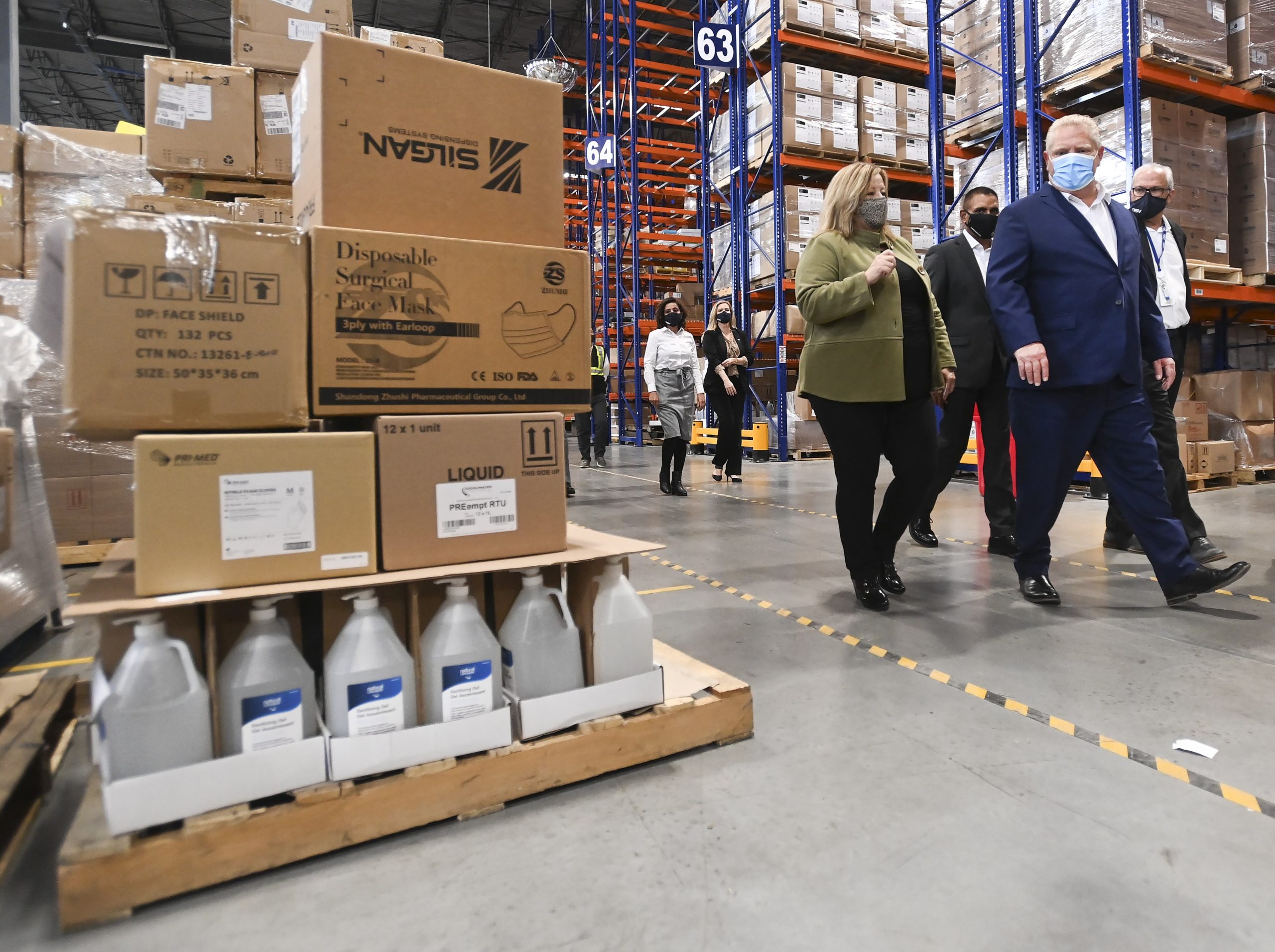Ontario could hit 1,000 daily COVID-19 cases in weeks according to modelling

TORONTO — Ontario could see 1,000 new cases of COVID-19 a day by mid-October, the government predicted Wednesday, saying rising infections among young people were driving the spread of the virus among all demographics.
Premier Doug Ford called the projections "deeply concerning" and said he was considering targeted regional restrictions to fight the second wave of the pandemic.
"We have to work together to turn the tide in this fight," he said in an appeal to the public, adding that he was trying to mount a balanced response to the province's escalating caseload.
"I don't believe in taking a hatchet, I believe in a very surgical approach ... When you talk about shutting down the economy, that's an extremely tough decision."
The latest projections show a recent upward trajectory in COVID-19, with Ontario's cases currently doubling every 10 to 12 days.
Dr. Adalsteinn Brown, one of those who put together the figures, said a rising number of cases in those aged 20 to 39 are contributing to spread of the virus across all age groups.
While young people with COVID-19 have lower mortality rates, they can transmit the virus to older people who are more at risk, he said.
"A large amount of infection among young people right now is likely starting to spill over, which is where we see the most tragic and most challenging consequences," said Brown, who is the dean of the Dalla Lana School of Public Health at the University of Toronto.
The modelling also warns about the risks of increasing occupancy in hospital intensive care units.
The province is trying to avoid ordering a total stop to most surgeries as was done earlier in the pandemic, creating a significant backlog. But normal hospital operations cannot be maintained if more than 350 patients are in ICUs across the province, the projections state.
As of Wednesday, 35 people were being treated for COVID-19 in ICUs in different parts of Ontario.
The CEO of Ontario Health, the province's main health agency, said the virus can have a major impact on other parts of the health-care system.
"Really, what we're trying to reflect ... is that this disease can have a profound impact on other aspects of our life, and of our society," Matt Anderson said. "What we want to do is protect those procedures."
Officials said the latest modelling doesn't take into account new rules introduced by the government in recent days, such as closing strip clubs and limiting hours of operation for bars and restaurants.
Ontario's chief medical officer of health said in order to lessen the effect of the second wave, residents must again strictly follow public health rules.
Dr. David Williams also said further restrictions may be issued in the coming weeks if needed.
"We need to pull up our socks," he said.
NDP Leader Andrea Horwath called the new modelling "shocking" and urged the premier to take additional action.
"Premier Doug Ford has been doing the bare minimum in order to save a buck, instead of investing in action to mitigate the size and damage of the second wave," she said in a statement.
"It's absolutely shocking that today's dire warnings ... come without any plan from this government to stop the spread."
Ontario reported 625 new cases of COVID-19 on Wednesday and four new deaths related to the virus. It marked a record-high of 700 cases on Monday. The majority of new cases are in the Greater Toronto Area and Ottawa.
In April, Ontario's projections said the pandemic death toll could range from 3,000 and 15,000 people depending on the actions taken by government and members of the public.
The province's current death toll stands at 2,848.
Meanwhile, Toronto city council approved new restrictions on bars and restaurants recommended by the local medical officer of health earlier this week.
The number of people permitted in bars and restaurants will now be a maximum of 75 patrons, down from 100. The number of people permitted at a table will be lowered from 10 to six.
Bars and restaurants will also be required to collect contact information from every patron and ensure that music be no louder than normal conversation in the establishment.
While voting for the new restrictions, councillors also approved a plan aimed at bolstering supports for struggling bars and restaurants which have been hard-hit by the pandemic.
This report by The Canadian Press was first published Sept. 30, 2020.
Shawn Jeffords, The Canadian Press




